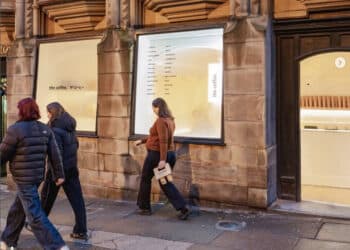The Saudi Agricultural Rural Development Program (Saudi Reef) has launched a new program that aims to plant 50,000 coffee seedlings and boost the productivity of coffee trees in Saudi Arabia by 30 per cent by the end of 2025.
The Saudi Reef program was created to address growing global concerns about food security and boost the contribution of the nation’s agricultural sector to GDP.
Saudi Arabia’s National Centre for Sustainable Agriculture Research and Development (Estidamah) recently announced its tissue culture laboratory had successfully produced more than 73,000 high-quality plant seedlings in 2024, including 1500 coffee seedlings.
Spokesperson for Saudi Reef Majid Al-Buraikan says the coffee tree tissue culture project has already achieved results, with 1000 cuttings plants to produce 1000 traceable seedlings from the development of disease-resistant and drought-tolerant coffee varieties.
These samples were created through the re-evaluation of 82 previously selected genetic patterns, which were consolidated into 12 genetic groups based on morphological similarities.
In addition to the push to create more and hardier coffee trees, more than 109 farmers have participated in domestic and international study programs. Visits have included experimental fields, demonstration farms, and cooperatives to allow farmers to learn about modern practices and technologies and apply them to their farms.
Saudi coffee is one of eight pillars addressed in the Saudi Reef program. The others are beekeeping and honey production, fruit cultivation, floriculture and aromatic plants, rain-fed crops, livestock, aquaculture, and rural women empowerment programs.
Led by the Ministry of Environment, Water and Agriculture, Saudi Reef reports it has reached more than 87,000 beneficiaries across all pillars and has reshaped production models.
In February 2024, the Jazan region was reported to produce more than 1000 tonnes of coffee per year from 2000 farms, according to the Ministry of Environment, Water and Agriculture.





